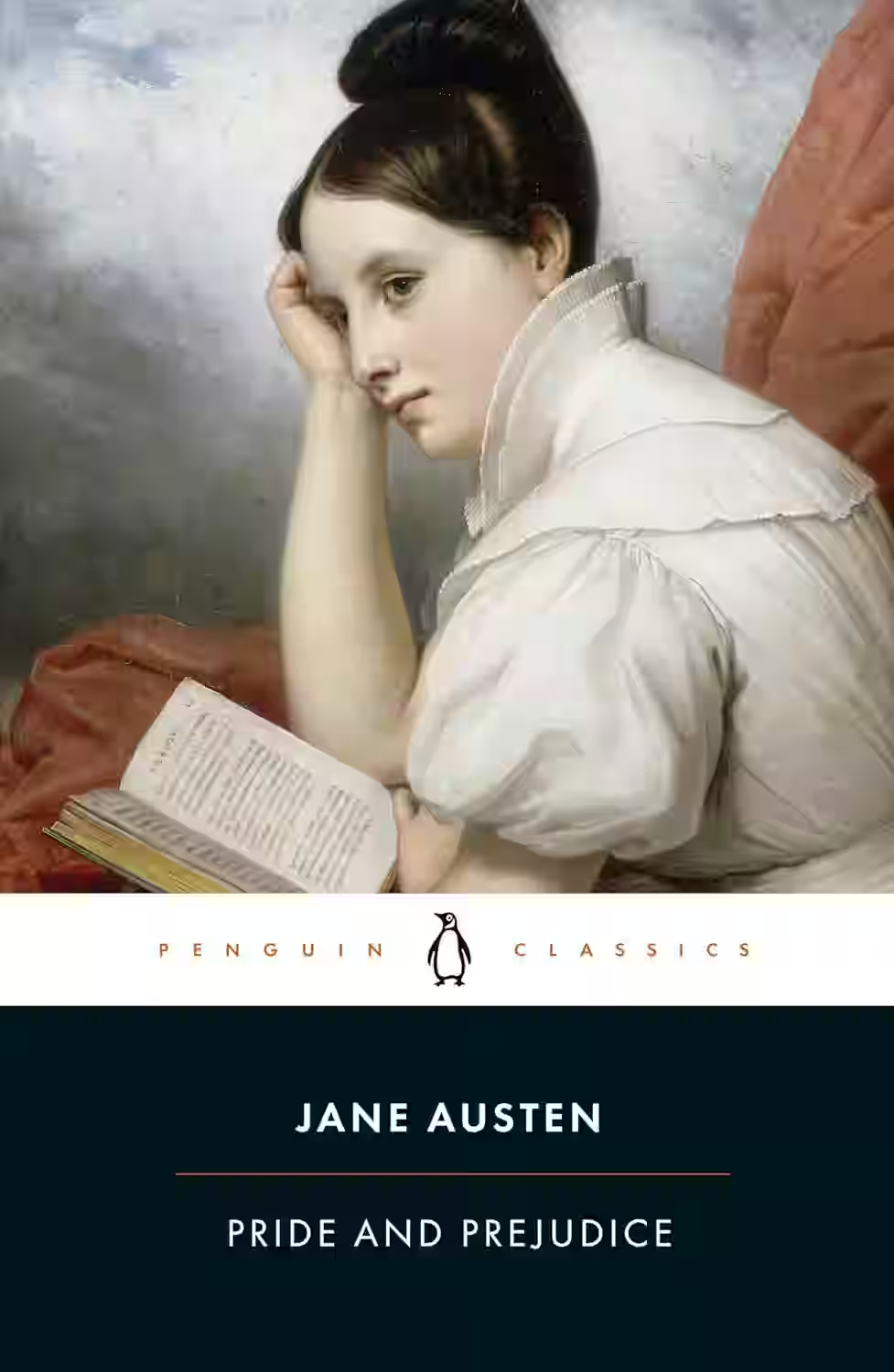
This beloved classic follows the spirited Elizabeth Bennet as she navigates love, marriage, and social status in Georgian-era England. When the wealthy and proud Mr. Darcy enters her life, their mutual prejudices create a complex dance of misunderstanding and growth. Through razor-sharp wit and social commentary, Austen crafts a timeless romance while critiquing class, marriage, and gender roles in 19th-century society.
About Jane Austen
A keen observer of English society during the Regency era, Jane Austen's novels offer witty and insightful portrayals of manners, marriage, and social standing. Through beloved works like Pride and Prejudice and Sense and Sensibility, she masterfully crafted intricate plots and memorable characters, often focusing on the lives of women navigating societal expectations and the pursuit of love. Her enduring popularity lies in her timeless exploration of human relationships and her sharp social commentary.
Other Books by Jane Austen

Emma
by Jane Austen
In Emma, Jane Austen crafts a witty and insightful portrait of a young woman who delights in matchmaking but misjudges her own feelings and those of others. Set in a quiet English village, the novel follows Emma Woodhouse as she navigates the social intricacies of love, class, and friendship. Though intelligent and charming, Emma’s meddling leads to misunderstandings that reveal her need for self-awareness. This classic novel explores personal growth and the pitfalls of pride with enduring humor and elegance.
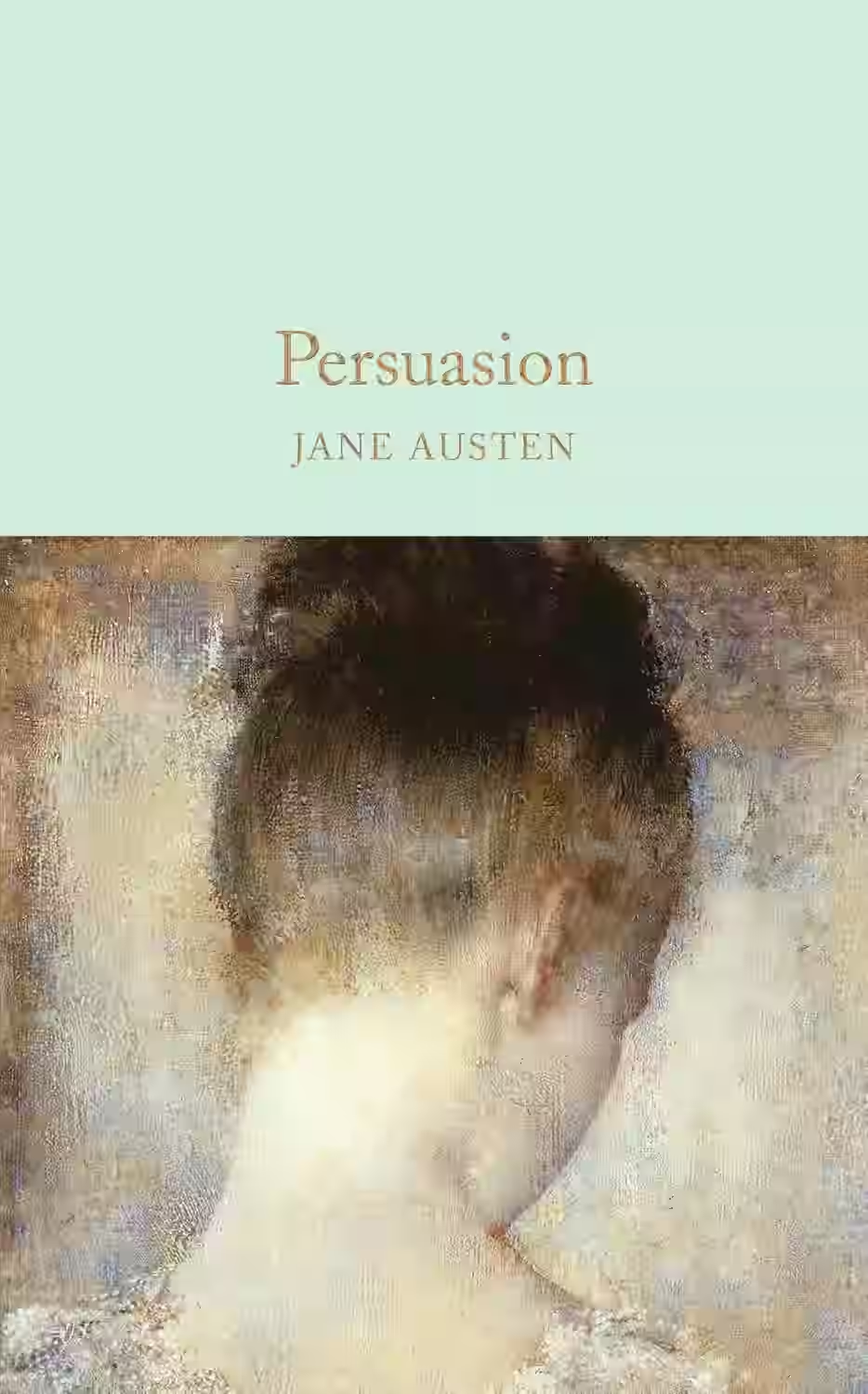
Persuasion
by Jane Austen
Jane Austen’s Persuasion is a quiet, mature romance about second chances. Anne Elliot, who once rejected the love of Captain Wentworth due to family pressure, encounters him again years later. Set against the backdrop of shifting social structures in early 19th-century England, the novel reflects on regret, resilience, and constancy. It is Austen’s final completed work and perhaps her most introspective, featuring a heroine whose emotional depth and intelligence reveal a nuanced view of love and personal growth.
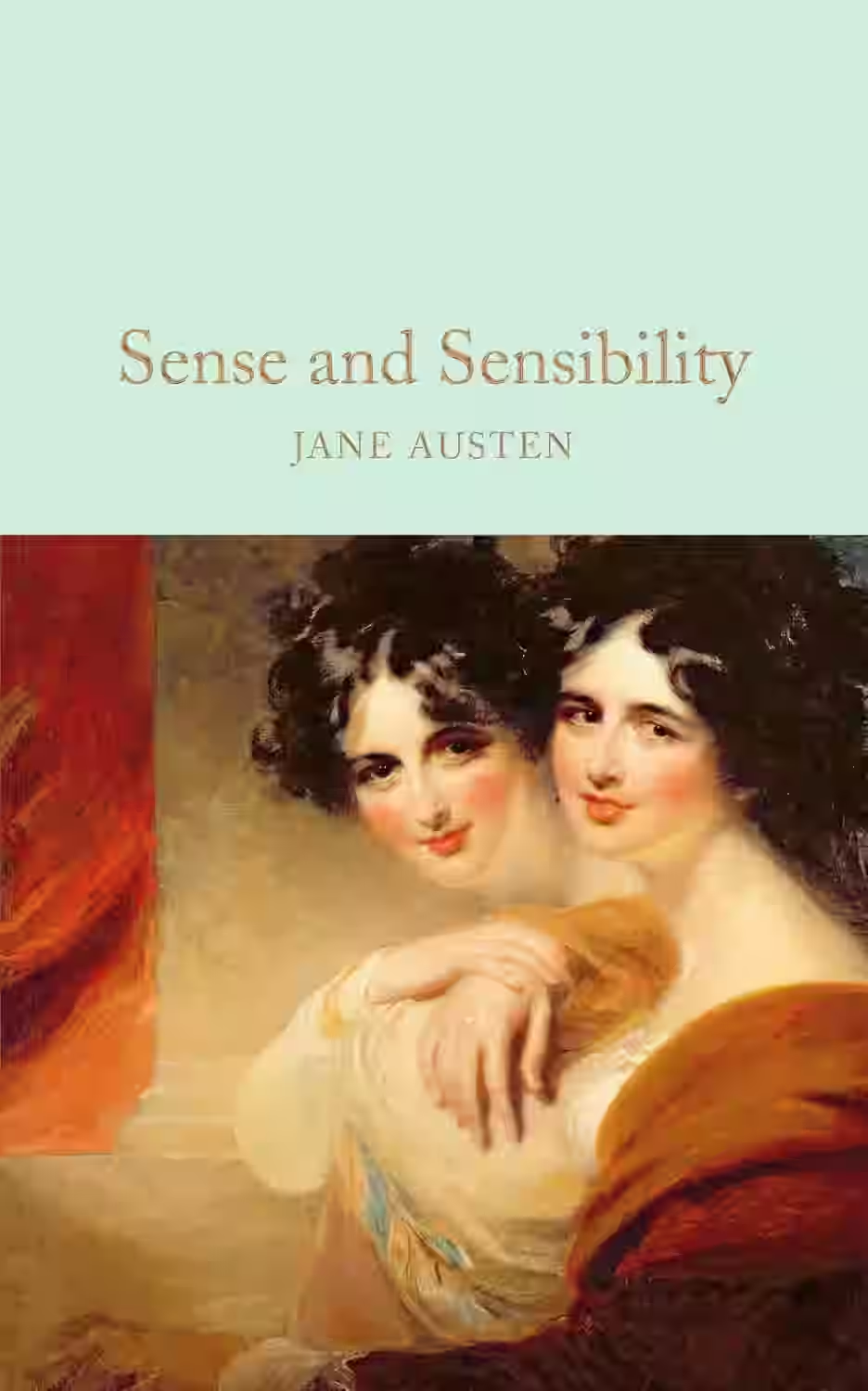
Sense and Sensibility
by Jane Austen
Jane Austen's 'Sense and Sensibility' explores the contrasting lives and philosophies of the Dashwood sisters, Elinor and Marianne. Set in 19th-century England, the novel delves into the themes of love, heartbreak, and sociopolitical constraints on women of that era. Elinor embodies 'sense,' with her pragmatic and composed nature, while Marianne represents 'sensibility,' guided by emotion and spontaneity. The sisters navigate the choppy waters of romance, betrayal, and societal expectations, each finding their own path to happiness. Austen's sharp wit and keen observations of human nature not only craft a compelling narrative but also critique the limitations imposed on women in her time. 'Sense and Sensibility' remains a timeless reflection on the balance between reason and emotion, and the enduring quest for personal fulfillment.
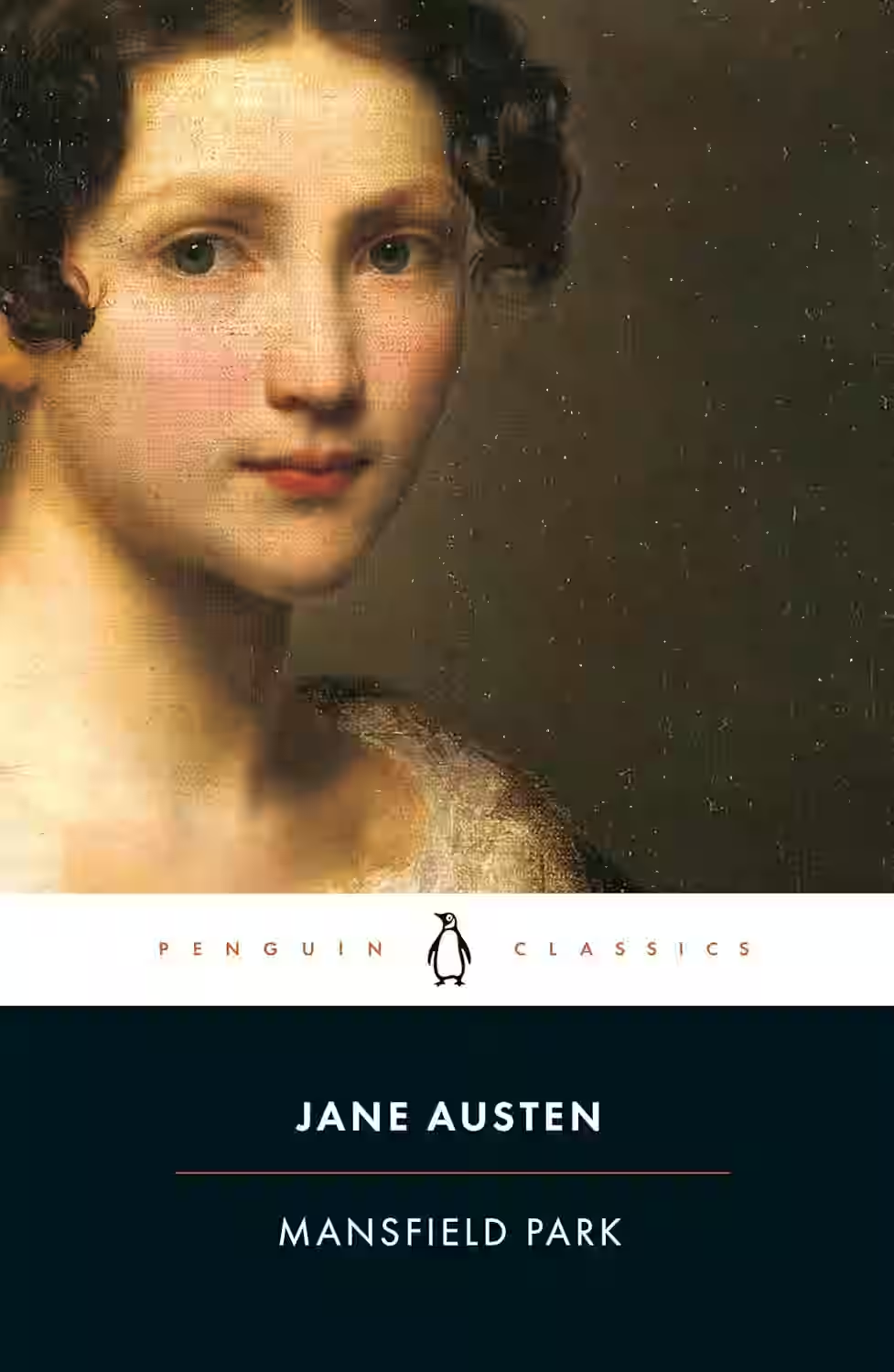
Mansfield Park
by Jane Austen
Jane Austen's 'Mansfield Park' intricately weaves a tale of class, morality, and personal growth through the experiences of Fanny Price, a timid and often overlooked young woman. Sent to live with her wealthy relatives at Mansfield Park at a young age, Fanny observes the intricate social dynamics and moral dilemmas that define the lives of those around her. The novel delves into themes of family, love, and the rigidity of social hierarchies, offering a critique of the societal values of Regency England. Unlike Austen's more light-hearted works, 'Mansfield Park' challenges readers with its somber tone and reflective examination of virtue, affording it a unique position in Austen's canon. Its exploration of Fanny’s internal struggles and the societal constraints she navigates remains impactful, engaging readers in a compelling narrative that questions the true nature of happiness and moral integrity.
Similar Books

East of Eden
Set in the rich farmland of the Salinas Valley, California, this powerful, often brutal novel, follows the interwined destinies of two families - the Trasks and the Hamiltons - whose generations hopelessly re-enact the fall of Adam and Eve and the poisonous rivalry of Cain and Abel. Here Steinbeck created some of his most memorable characters and explored his most enduring themes- the mystery of indentity; the inexplicability of love, and the murderous consequences of love's absence.

To the Lighthouse
The serene and maternal Mrs. Ramsay, the tragic yet absurd Mr. Ramsay, and their children and assorted guests are on holiday on the Isle of Skye. From the seemingly trivial postponement of a visit to a nearby lighthouse, Woolf constructs a remarkable, moving examination of the complex tensions and allegiances of family life and the conflict between men and women. As time winds its way through their lives, the Ramsays face, alone and simultaneously, the greatest of human challenges and its greatest triumph—the human capacity for change.

Uncle Tom’s Cabin
A landmark anti-slavery novel, Uncle Tom’s Cabin tells the story of enslaved man Tom and the brutal realities of slavery in 19th-century America. With vivid characters and emotional power, it galvanized abolitionist movements and shaped public opinion like no other book of its time. Though controversial for its portrayals today, it remains a pivotal work in American literature and history, sparking empathy and national debate.
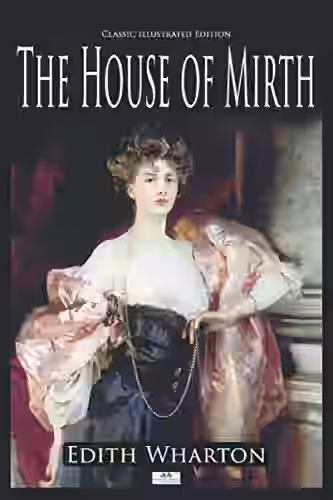
The House of Mirth
Edith Wharton’s The House of Mirth portrays the downfall of Lily Bart, a beautiful and intelligent woman navigating New York’s high society at the turn of the 20th century. Torn between love, independence, and societal expectations, Lily’s refusal to compromise leads to social isolation and personal ruin. The novel critiques the rigid class structure, gender roles, and materialism of Gilded Age America. With elegant prose and psychological insight, Wharton delivers a tragic portrait of a woman trapped by her environment.